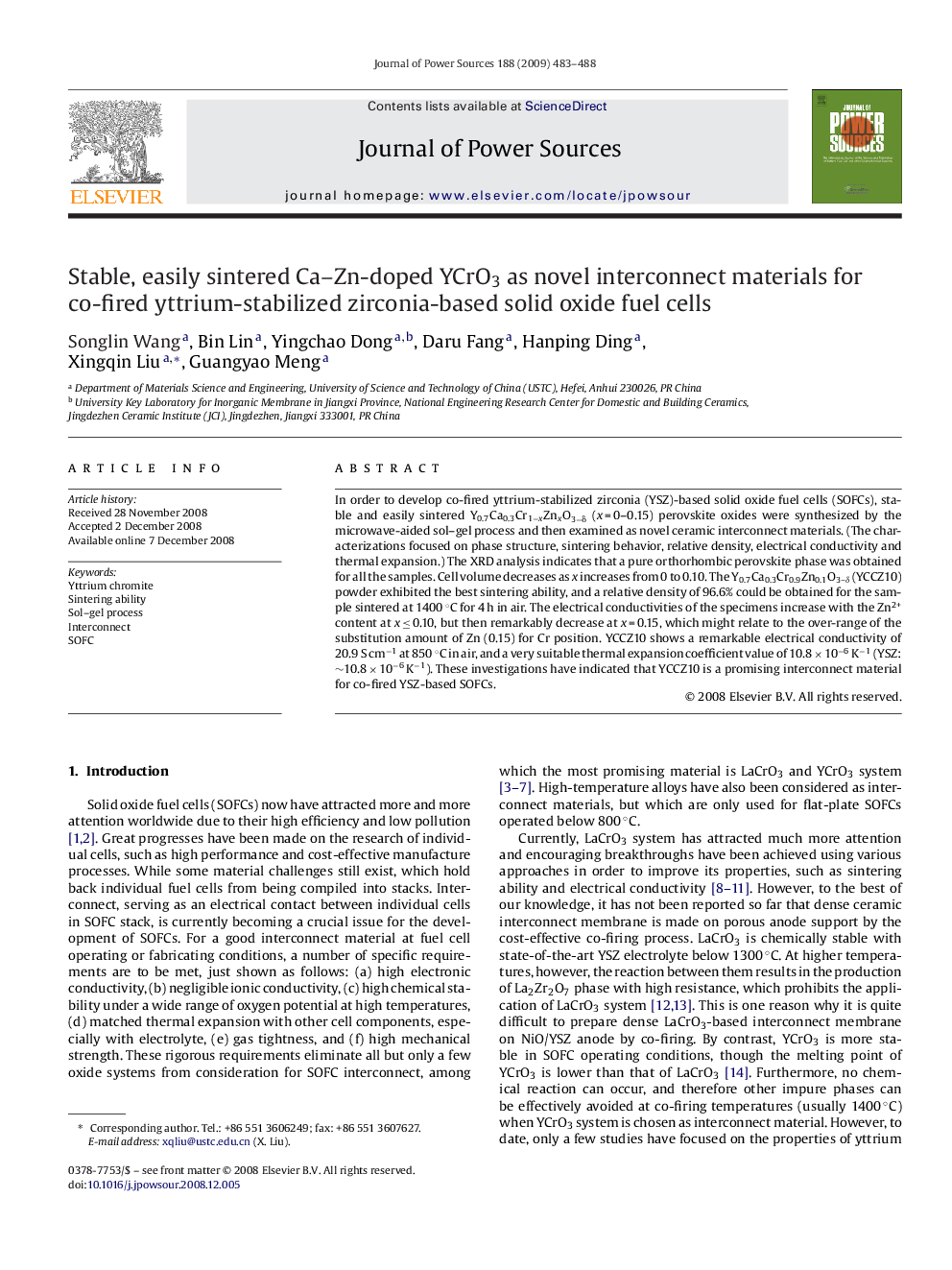| Article ID | Journal | Published Year | Pages | File Type |
|---|---|---|---|---|
| 1294248 | Journal of Power Sources | 2009 | 6 Pages |
In order to develop co-fired yttrium-stabilized zirconia (YSZ)-based solid oxide fuel cells (SOFCs), stable and easily sintered Y0.7Ca0.3Cr1−xZnxO3−δ (x = 0–0.15) perovskite oxides were synthesized by the microwave-aided sol–gel process and then examined as novel ceramic interconnect materials. (The characterizations focused on phase structure, sintering behavior, relative density, electrical conductivity and thermal expansion.) The XRD analysis indicates that a pure orthorhombic perovskite phase was obtained for all the samples. Cell volume decreases as x increases from 0 to 0.10. The Y0.7Ca0.3Cr0.9Zn0.1O3–δ (YCCZ10) powder exhibited the best sintering ability, and a relative density of 96.6% could be obtained for the sample sintered at 1400 °C for 4 h in air. The electrical conductivities of the specimens increase with the Zn2+ content at x ≤ 0.10, but then remarkably decrease at x = 0.15, which might relate to the over-range of the substitution amount of Zn (0.15) for Cr position. YCCZ10 shows a remarkable electrical conductivity of 20.9 S cm−1 at 850 °C in air, and a very suitable thermal expansion coefficient value of 10.8 × 10−6 K−1 (YSZ: ∼10.8 × 10−6 K−1). These investigations have indicated that YCCZ10 is a promising interconnect material for co-fired YSZ-based SOFCs.
